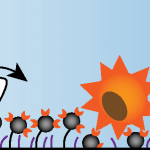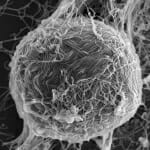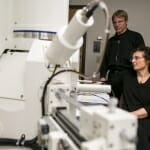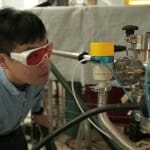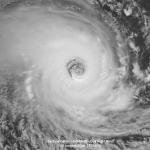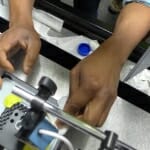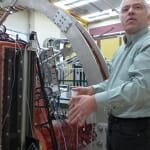Tag Research
Kids with easy access to firearms are more likely to be depressed
Easy access to a gun at home is bad for a child’s mental health, particularly for girls, according to a new examination of a study of American schoolchildren from the 1990s.
UW study: Excessive use of menthol cough drops could actually increase coughs
A new study of more than 500 patients has shown that too many cough drops - especially those containing menthol - may actually make coughs more severe.
They grin, you bear it. Research reveals physical impact of a smile.
New research shows that smiles meant to convey dominance trigger a physical spike in stress hormones in their targets, while smiles intended as a reward appear to physically buffer recipients against stress.
Girls and women not a “silver bullet” for ending poverty
Researcher Kathryn Moeller says such initiatives transfer the responsibility for change onto girls and women, and away from governments, corporations and global governance institutions whose actions have often led to the unequal distribution of resources, poor labor conditions and other structural inequities.
Forecasting antibiotic resistance with a ‘weather map’ of local data
To help physicians choose the best antibiotic first, researchers in the School of Pharmacy and the State Cartographer's Office are drawing inspiration from the weather.
To sleep, perchance to forget
The debate in sleep science has gone on for a generation. People and other animals sicken and die if they are deprived of sleep, but why is sleep so essential?
New approaches in neuroscience show it’s not all in your head
“How we experience the world affects us in more ways than we previously thought,” says Richard Davidson, a professor of psychology and psychiatry at UW–Madison and director of the Center for Healthy Minds.
Beyond silicon: researchers solve a materials mystery key to next-generation electronic devices
UW-Madison researchers have provided evidence of a hole gas coexisting with two-dimensional electron gas, a key discovery for oxide electronics.
Enter your amazing science images in the 2018 Cool Science Image Contest
To recognize the visual and exploratory value of scientific imagery, the contest offers an opportunity to show off compelling — and often artistic — science images made by students, staff or faculty.
From fungi to humans, ‘smart valves’ assist communication within, between cells
Trees. Fungi. Monkeys. Fish. Your aunt and uncle. Without fusion pores built of SNARE proteins, they can't exist.
Stellar magnetism: What’s behind the most brilliant lights in the sky?
"The best picture yet of magnetic reconnection in space” offer insight into the role of magnetic reconnection in celestial explosions, eruptions and extraordinary emissions of energy.
Urban foxes and coyotes learn to set aside their differences and coexist
Diverging from centuries of established behavioral norms, red fox and coyote have gone against their wild instincts and learned to coexist in the urban environment of Madison and the University of Wisconsin–Madison campus.
An Achilles heel discovered in viruses could fuel new antiviral approaches
Scientists at the Morgridge Institute for Research have discovered a promising new target to fight a class of viruses responsible for health threats such as Zika, polio, dengue, SARS and hepatitis C.

